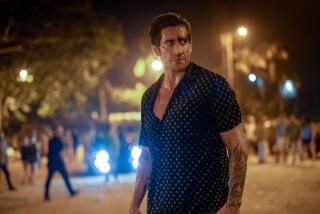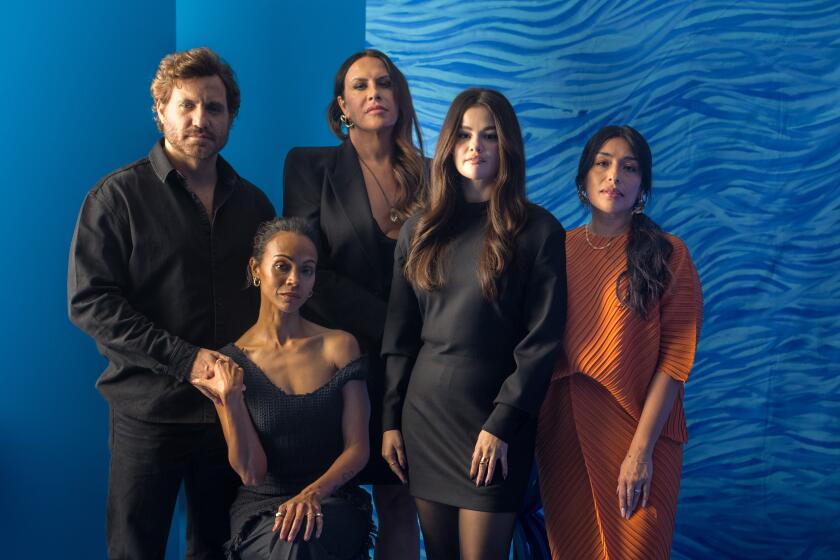Down on his luck in Hollywood, David Arquette wrestles with his demons to prove he’s no joke
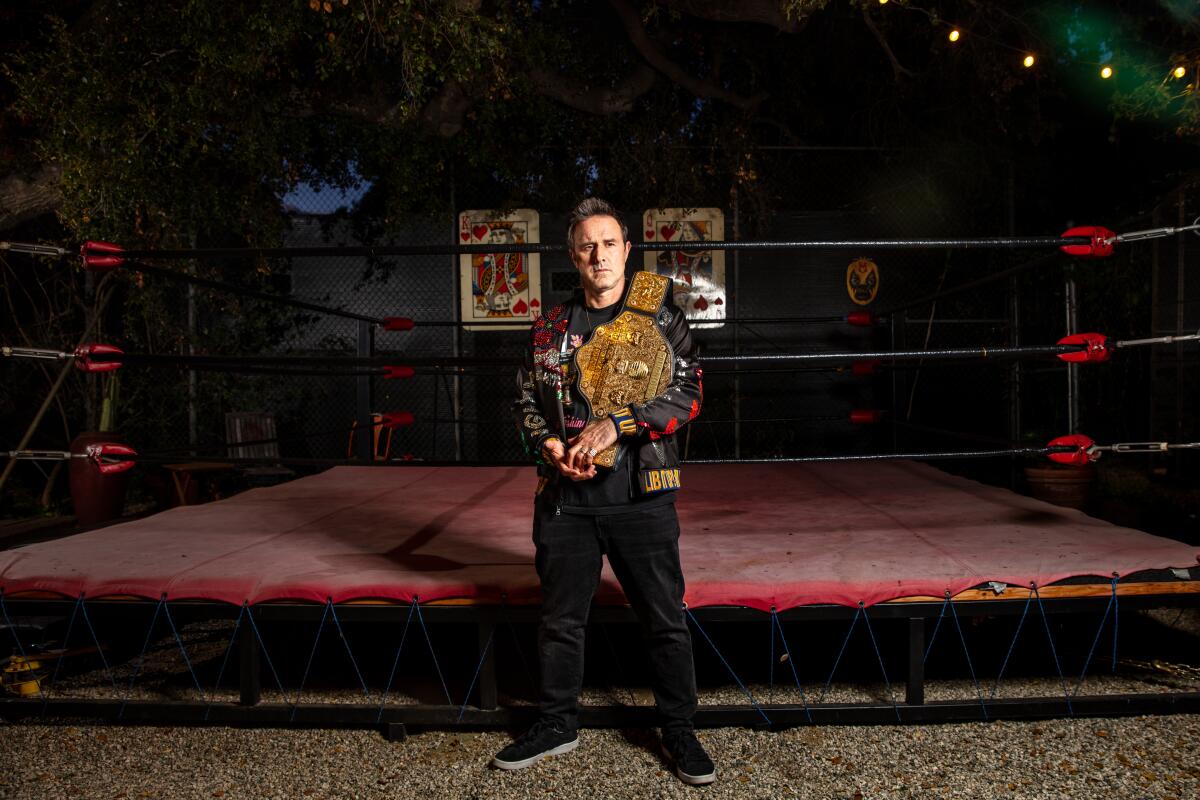
“Welcome to South by Southwest, brought to you by Febreze,” David Arquette said, clutching a bottle of air freshener.
The actor was standing in his living room in front of about five dozen guests, and he was sweating. He had just helped to move a 400-pound table to make more space in his Encino home for his famous siblings, some wrestlers and film producers to watch a new documentary about his life.
Just 24 hours before, on March 6, Arquette had learned that SXSW was canceled due to the coronavirus. The sudden and unexpected move meant that “You Cannot Kill David Arquette” — a movie following the 48-year-old’s quest to be taken seriously as a professional wrestler — would no longer have a splashy film festival premiere.
Like many filmmakers who were hoping the festival would be the first step in getting their project into the world, Arquette and his wife, Christina — who is also a producer of the documentary — were blindsided and unsure what to do next.
So they took matters into their own hands. They made a Costco run to stock up on beverages. They found a taco truck that was available to show up last-minute. They cleaned up their backyard, where a wrestling ring is veiled by strings of lights. They booked a flight for one of the film’s two directors to travel from the East Coast so that he could attend the event. They took artwork off their wall so it could be used as a projection space and removed pillows from couches so guests could sit on the floor.
“It really means a lot that you all are here. It was really devastating to get the news yesterday,” said Christina, a former broadcast journalist who now produces documentaries. “So we decided to have South By in our living room.”
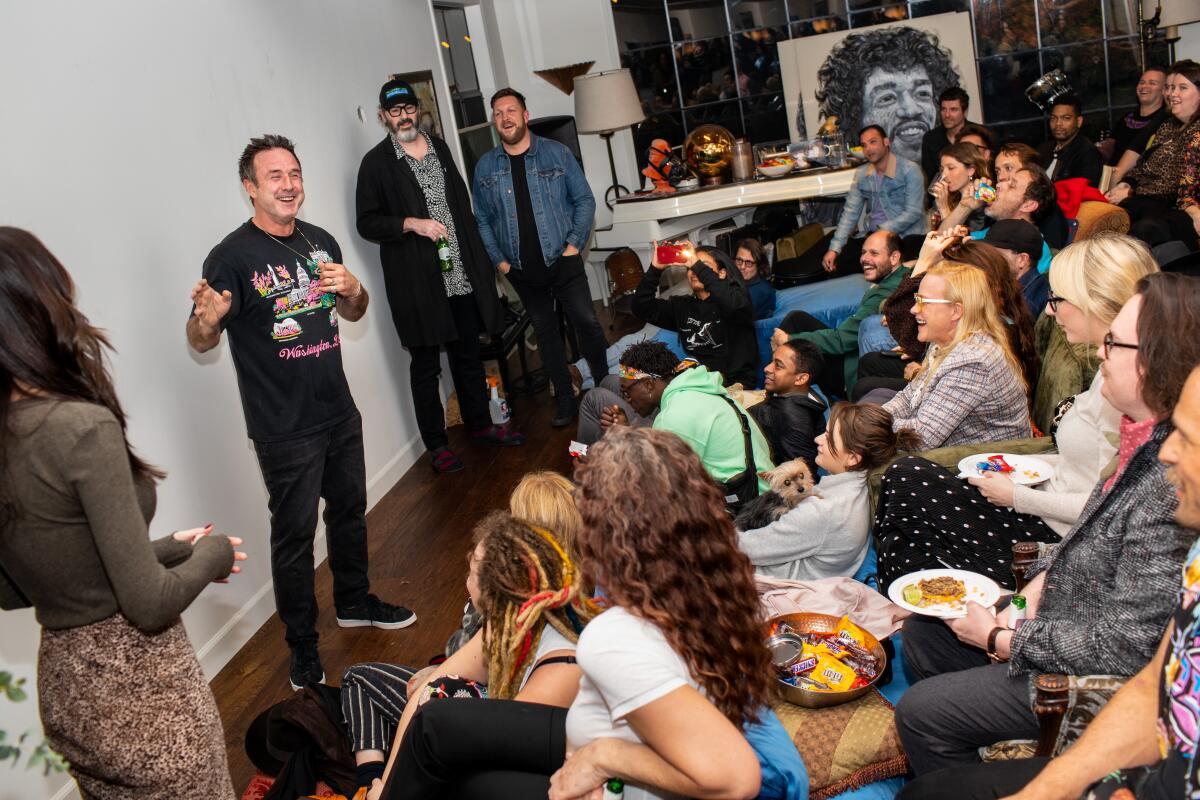
Without the platform of the Austin, Texas-based SXSW festival, numerous independent movies are now scrambling for other ways to attract the attention of film buyers. The Arquettes realize that “You Cannot Kill David Arquette,” which does not yet have theatrical or streaming distribution, is just one of them. Filmed over the last three years, the documentary begins after Arquette has suffered a heart attack. He’s been auditioning for almost a decade with no real luck, and his drunken public antics have garnered more press than his acting work.
In poor physical and mental condition, he decides to get back into shape by embarking on an unlikely journey: returning to the wrestling ring, where he was briefly the WCW World Heavyweight Champion in 2000. But because Arquette was awarded that title as part of a cross-promotional effort for a film he was in, “Ready to Rumble,” he was widely considered a joke by fans of the sport.
“It had always bugged me, the way fans took it. I didn’t mean to be this disgrace on wrestling,” Arquette said. “When the International House of Pancakes changed their name to International House of Burgers, someone said, ‘That’s a worse idea than making David Arquette the WCW champion.’ I’m like, ‘18 years later, I’m the low bar?’ I was sick of the bullying, and I wanted to stand up and rewrite the ending.”
As his friends and family lingered nearby, Arquette was sequestered in what he referred to as his “blue room,” an area with an azure sofa and navy walls. Puppets and dummies — gifts from his grandfather, a vaudevillian — and a poster for the 1953 film “The Clown” decorated the space.
He was anxious about the makeshift movie premiere. He had yet to watch the film and was under strict orders from his therapist to “just keep it cool” in anticipation of the event.
“It’s just very personal. It was a really difficult year or two,” Arquette said, sinking into the cushions. “A lot of it is like, ‘Ugh! Cringe.’ Very embarrassing behavior. But it’s also very honest, and I’m just kind of open about it all and really went for it and challenged myself. I sort of learned a lot about myself in the process.”
Indeed, the documentary does not stray from uncomfortable moments in Arquette’s life. It touches on his addiction struggles, showing him stumbling out of nightclubs and getting a lap dance in a strip club. His ex-wife Courteney Cox — whom he married in 1999 and divorced 14 years later — is interviewed about how embarrassed she was when Arquette embraced wrestling at the height of her “Friends” fame.
He laments that no one in Hollywood takes him seriously while simultaneously admitting he’s been “a mess” his whole life and will “probably be a mess forever.” He even let cameras document him receiving a medically supervised ketamine IV infusion for his severe depression. (A doctor subsequently explains that his “brain isn’t connected in a typical way.”)
“I think it was really courageous and brave to show that,” said Christina, who suggested to the directors that the treatment might make for an interesting scene. “There’s a fine line to walk with it. You don’t want to be exploiting his mental health struggles. But he wants to be able to talk about his struggles, so people maybe understand him a little bit better. He really works on himself and tries hard.”
Arquette says the ketamine infusions have proved helpful, particularly in working through his relationship with his late parents. He still finds it hard to talk about sobriety because he doesn’t feel he’s “this sober guy.”
“Right now I use CBD with a little bit of THC, which helps a lot with my anxiety. It makes you a little stoned but not crazy stoned,” he said. “I just know I can’t drink hard liquor for sure. I don’t drink a lot of beer or wine, so I’m pretty much not drinking. It is stressful, because it was something my dad struggled with and it’s been an ongoing theme in our lives. I made some of my worst decisions drunk off my ass, so I don’t want to be like that anymore. I’ve stopped doing that — getting to a point where I’m ... wasted. I don’t know. That’s all I can do.”
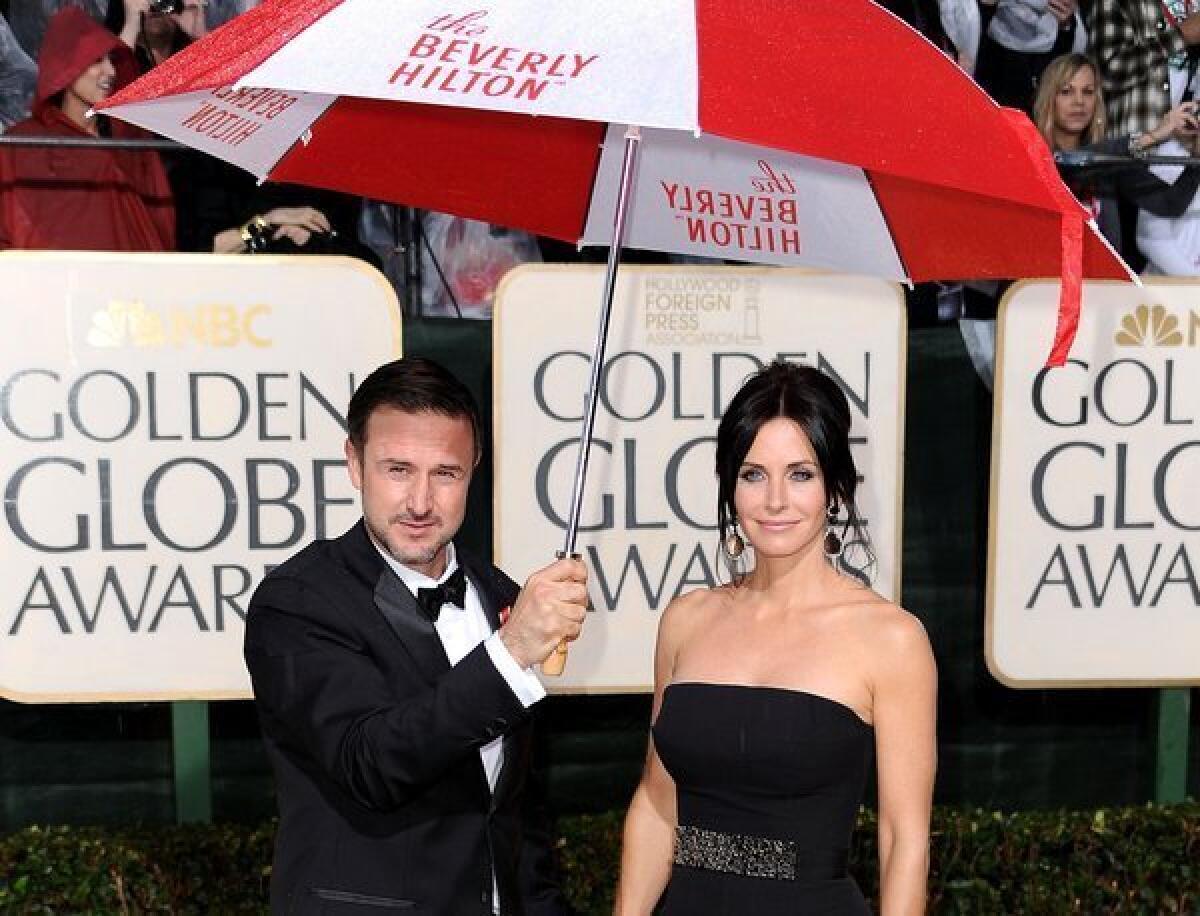
When Arquette pitched the documentary to his friends Bryn Mooser and David Darg — co-founders of the media company Ryot — he billed it as a lighthearted adventure into the world of wrestling. But Darg, who would go on to co-direct the movie with music video creator Price James, saw a more layered story at play.
“I thought the story had a lot of potential to actually have a lot of deep meaning,” said Darg, whose documentary short about the Ebola virus, “Body Team 12,” was nominated for an Oscar in 2016. “My films have been about the endurance of the human spirit, and this is no different than anything I’ve worked on.”
“It’s about aging and what happens when you have celebrity early,” added James. “When that diminishes, how do you recover from that? What’s your mental state? How do you fill that void? He loves wrestling, so he filled it with something he truly loved, and I think he grew as a person.”
Arquette’s fascination with wrestling began when he was a boy. He loved how theatrical it was, how the over-the-top tropes tapped into themes about the human condition. He related to the wrestlers, who felt like fellow oddballs — guys trying to find love by putting themselves at the center of the ring.
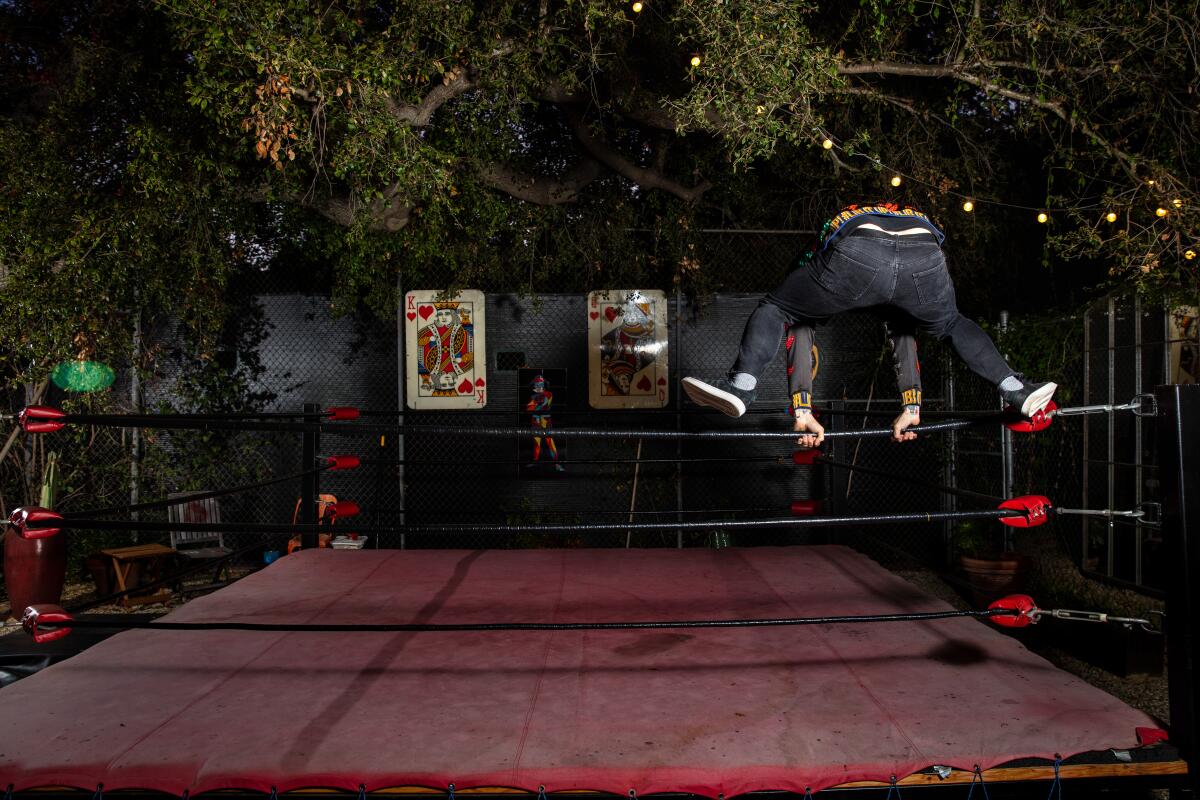
Then, in 2017, he began experiencing health issues. He’d film videos for his social media accounts and notice how labored his breathing sounded. On a trip to Lake Arrowhead, he started to get a strange feeling in his chest, which he blamed on the altitude. When he didn’t feel better back in L.A., he got a stress test and had to be medicated for a heart attack, ultimately receiving two stents in his heart.
While he was recovering from the surgery, he found his mind drifting back to wrestling.
“Why is this the thing I keep thinking about?” he wondered. “And then I just decided: ‘Well, life’s too short.’”
Sure, returning to the sport would get him back in shape — forcing him to lose 50 pounds through training — but his family was concerned about the risk it presented.
“I was not thrilled at all,” said his sister Patricia Arquette, who shrouded her eyes throughout the most violent scenes of the film. “It scared me. And I also don’t like the idea of people being mean to him. He’s one of the most beautiful people on Earth — incredibly talented and creative. ... And he’ll be raw and look at his love affair or marriage and all these things. It’s a weird thing to be a celebrity and have people on TMZ and whatever talking about ‘Get sober. Get a job.’ Who the ... are you to tell anybody what to do? Everybody gets to tell you what to do when you do this for a living.”
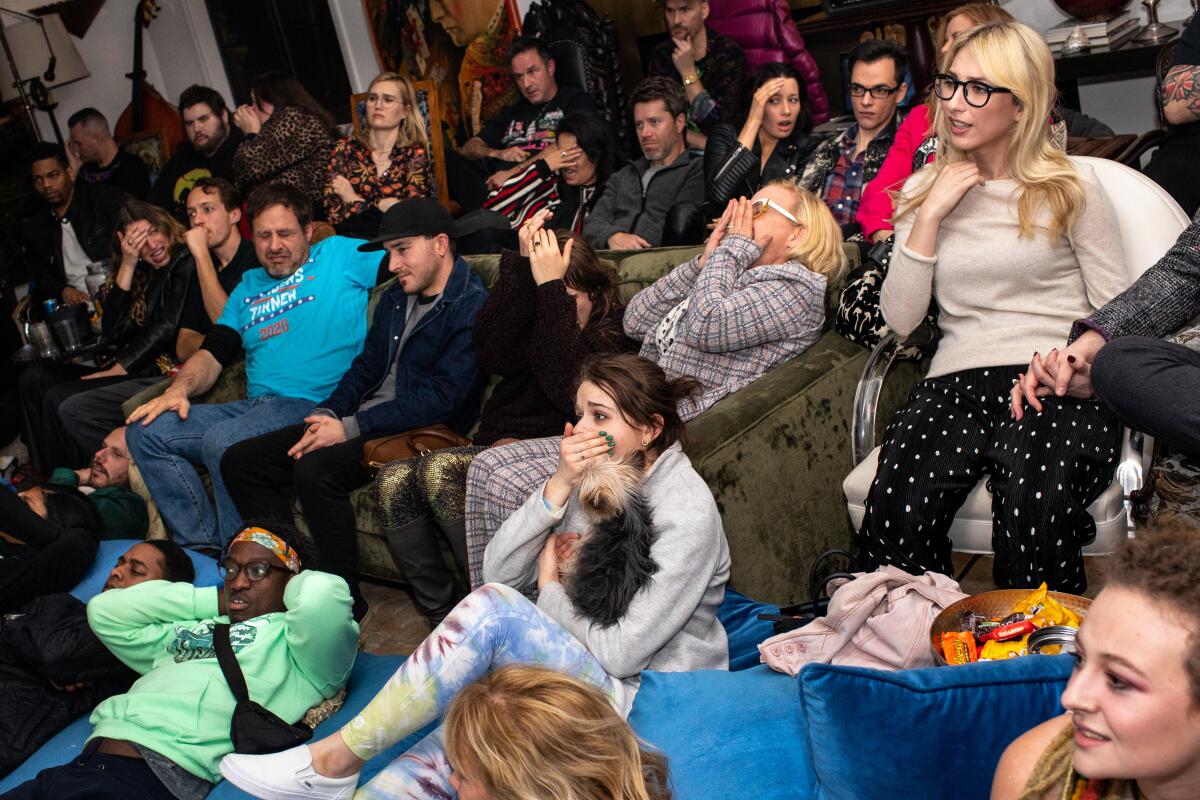
While David has struggled to land acting gigs, Patricia has been a darling of the awards circuit, picking up three Golden Globes, two SAG Awards, an Emmy and an Oscar since 2015. Their sister Rosanna has emerged as one of the leading voices of the #MeToo movement after speaking out against convicted rapist Harvey Weinstein. While David will only wax rhapsodic about his siblings — including his brother Richmond (“an amazing actor”) and late sister Alexis (“she never got the parts I would have loved to see her do”) — it’s clear he also wishes he was taken as seriously as them.
“It’s a brutal business. I’ve been in it 30 years,” said Arquette, who is still arguably best known, acting-wise, for his comedic turns in the “Scream” franchise. “You want to do good work, but you also have to work. I’ve worked opposite some wonderful actors. I know I’ve got what they got, you know what I mean? To me, I can play any kind of thing. Except Sherlock Holmes. I don’t think anyone who’s not English should ever play Sherlock Holmes.”
He’s hopeful that his new documentary helps casting directors view him in a different light — and maybe even expand their view of wrestlers in general. He thinks Stone Cold Steve Austin should have a cop show on CBS and that Ric Flair should be up for the parts Bruce Dern is getting.
“I think there could be ten Rocks,” Arquette said, referring to Dwayne “The Rock” Johnson. “In Hollywood, I don’t think people really still get who I am. You’re always fighting for: ‘Is David Arquette tough?’ Yeah, he can be ... .
“I hate casting. I mean, the process is completely ... . I’m so over it. It’s really hard when you’ve been doing it for so long. There’s a lot of my work to see. Call a few producers to see how I am to work with.”
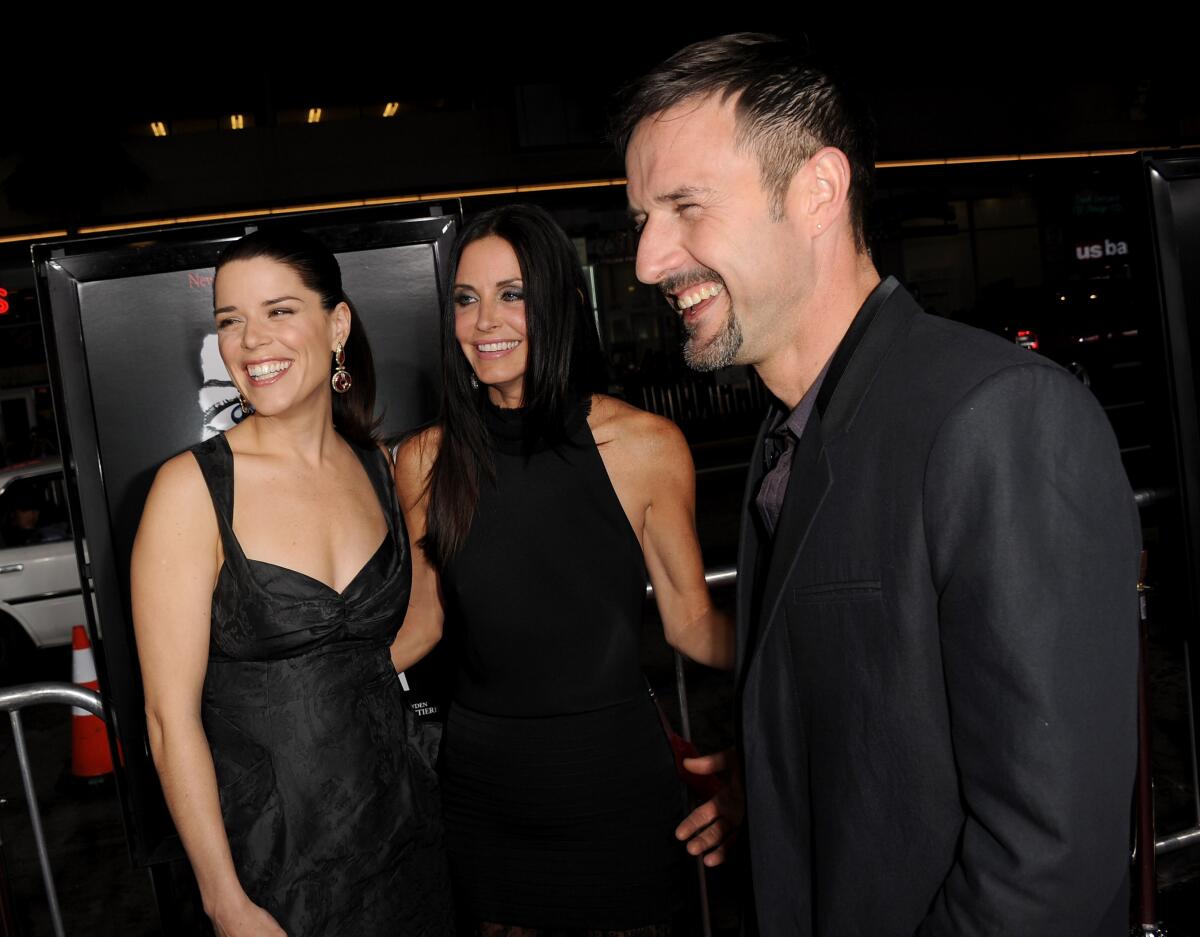
As for whether anyone will have the chance to actually see “You Cannot Kill David Arquette?” Mooser, whose newly launched documentary studio XTR produced the film, is hopeful. Although the executive acknowledged that missing out on SXSW is disappointing, he’s still planning to get the film in front of the “30 people who make all the decisions” about buying films.
“I actually feel pretty confident that the outcome is gonna be the same — we’ll still sell it to the best possible place,” Mooser said. “I just think what’s missing is this celebration of the end of the journey at SXSW and to get fans excited about it. The buyer’s piece will happen regardless. I don’t know how swayed they are by an incredible premiere.”
No matter where the film ends up, Arquette said he’s proud he was able to prove himself on the independent wrestling circuit. Still, he said, he struggles to tune out outside criticism and embrace self-love.
“You don’t want to always feel like a joke,” he said, growing somber. “I get it sometimes. I’ve done so many foolish things, and I am constantly kicking myself. But I wouldn’t want people to be mean about me. A lot of that has to do with my inner voice in my head. That’s part of me finding love for myself, forgiving myself, not beating myself up. That’s been the biggest part of my whole thing.”
More to Read
Only good movies
Get the Indie Focus newsletter, Mark Olsen's weekly guide to the world of cinema.
You may occasionally receive promotional content from the Los Angeles Times.



